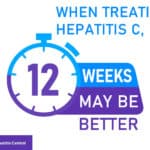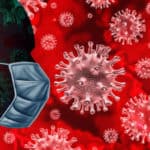Another HCV Treatment Advance
Genelabs Drug Discovery Team Advances Compounds Against the Hepatitis C Virus in Preclinical Development
REDWOOD CITY, Calif., Aug. 4 /PRNewswire-FirstCall/ — Genelabs Technologies, Inc. (Nasdaq: GNLB) today announced that a non-nucleoside compound from its internal Hepatitis C virus (HCV) drug discovery program has advanced into preclinical development. The compound, designated GL60667, is the second Genelabs non-nucleoside compound to advance into preclinical development.
Genelabs also announced that the company has further advanced GL59728, its first non-nucleoside preclinical development candidate. Genelabs plans to initiate Good Laboratory Practices (GLP) preclinical studies on GL59728 which, if successful, would enable the company to file an Investigational New Drug Application (IND) for the compound. Genelabs retains all commercial rights to its non-nucleoside compounds. Genelabs based its decision to advance compound GL60667 on rigorous pre- determined standards, including various measures of potency, metabolism, pharmacokinetics and toxicity. Genelabs believes that compounds meeting these criteria should hold a competitive advantage over other non-nucleoside HCV inhibitors described in the scientific literature. GL60667 has demonstrated the following properties in in vitro assays:
— potency of approximately 40 nanomolar against an HCV replicon. — potency of approximately 20 nanomolar for inhibition of the HCV polymerase. — potency against the major genotypes of HCV, including genotype 1, the most common genotype in the United States and western Europe.
The concentration of GL60667 that is effective in reducing HCV replication is more than 100 times lower than the concentration that causes toxicity to various human cell lines, as demonstrated in a battery of tests conducted by Genelabs. Genelabs also has profiled the metabolic and pharmacokinetic properties of GL60667 in several different animal species. Extrapolating from this data, Genelabs believes the compound should be suitable for once-a-day dosing.
Separately, Genelabs advanced its first non-nucleoside preclinical candidate, GL59728, into IND-enabling studies based on favorable results from 1-day and 7-day toxicology studies in two animal species. Selection of a vendor for process development and large-scale synthesis is underway.
“The preclinical results generated to date from our hepatitis C virus drug discovery efforts demonstrate the depth and breadth of our research programs in this important and growing therapeutic area,” stated James A.D. Smith, president and chief executive officer. “We know of only a handful of HCV drug discovery programs targeting the polymerase that have moved into preclinical development, and we believe ours has produced the most exciting results thus far. I am very pleased with the progress we have demonstrated towards our goal of developing best-in-class compounds targeting the hepatitis C virus.”
In addition to its non-nucleoside HCV drug discovery program, Genelabs also has an HCV drug discovery program using nucleoside compounds under a September 2004 research collaboration and license agreement with Gilead Sciences, Inc.
Apart from the nucleoside and non-nucleoside HCV polymerase drug discovery programs, in 2004 Genelabs initiated a third HCV drug discovery program focusing on another target essential for HCV replication. This target is encoded by the region of the HCV genome known as NS5a. Genelabs believes compounds targeted at NS5a could lead to drugs that inhibit HCV by a novel mechanism.
As such, these compounds may be particularly attractive for combination treatment regimens in HCV. In preliminary studies, Genelabs’ small molecule compounds in this program can inhibit the HCV replicon with minimal toxicity to human cell lines. The company has generated initial lead compounds which are in the process of optimization.
About Hepatitis C
The Hepatitis C virus is an infectious and potentially fatal virus that can be contracted through blood and bodily fluid contact. The virus attacks the liver and can cause liver inflammation, liver scarring, liver failure and liver cancer. In most cases, the body is not able to fight off the infection and the infected individual becomes a chronic carrier of HCV. According to the World Health Organization, as many as 170 million people worldwide have chronic HCV infection.
The United States Centers for Disease Control and Prevention estimates that approximately 2.7 million people in the United States are chronically infected with HCV and that each year there are approximately 25,000 new cases of HCV infection and approximately 8,000 to 10,000 deaths from hepatitis C complications. Liver failure resulting from chronic HCV infection is now recognized as the leading cause of liver transplantation in the United States.
The current standard of care for treatment of HCV is a combination of pegylated interferon alpha and the nucleoside analogue ribavirin, typically given over a number of months, withinterferon injected once weekly and ribavirin given orally once daily. This treatment regimen is effective only in approximately 50% of patients infected with HCV genotype 1, the genotype most prevalent in the United States. The interferon/ribavirin treatment has significant toxicities, most importantly severe anemia and psychiatric effects. There are no other drugs or biologics approved by the FDA for treatment of HCV. As a consequence, the pool of patients continues to grow.
About Genelabs
Genelabs Technologies, Inc. is a biopharmaceutical company focused on the discovery and development of pharmaceutical products to improve human health. We have built drug discovery and clinical development capabilities that can support various research and development projects. Genelabs is currently concentrating its capabilities on developing a late-stage product for lupus, discovering novel compounds that selectively inhibit replication of the hepatitis C virus and advancing preclinical development of compounds from this hepatitis C virus drug discovery program. We believe that these high-risk, potentially high reward programs focus our research and development expertise in areas where we have the opportunity to generate either first-in-class or best-in-class products that will address diseases for which current therapies are inadequate.







